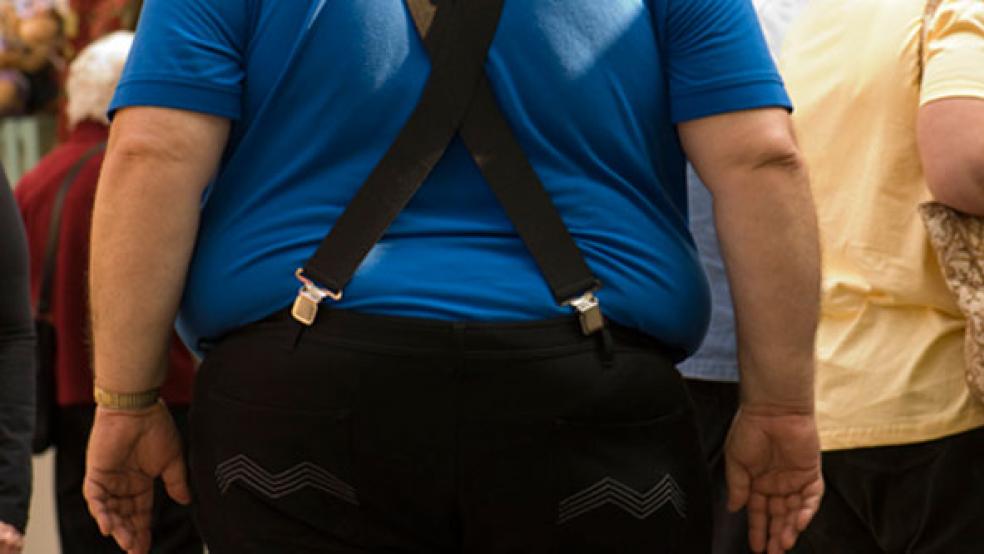While smokers have been putting out their cigarettes, Americans have been putting on something else: weight. According to a Harris Poll released on Wednesday, only 17 percent of Americans now smoke cigarettes, down from 30 percent in 1985 — a 43 percent decrease. That’s great news, meaning less lung cancer, heart attacks, pulmonary disease, and on top of that, savings on health care. A 2002 study found that health care costs were 21 percent higher for smokers.
But the poll also found that 34 percent of Americans are now obese, a 127 percent increase since 1985. The growing obesity epidemic in the U.S. is no secret. Some estimate it leads to more than 100,000 deaths annually, and along with it comes heart disease, strokes, diabetes, arthritis and cancer. According to a 2009 study in the peer-review journal Health Affairs, medical costs for an obese person are 41.5 percent higher per year than a non-obese person. Spending on obesity-related conditions was $147 billion last year — 10 percent of total health spending. Medicaid bears much of this burden, with obesity accounting for about 12 percent of total Medicaid spending.
Many credit the decline in smoking to higher cigarette taxes. The Congressional Budget Office estimates that smoking falls 2.5 to 5 percent for every 10 percent increase in the price of cigarettes. With this level of success, many politicians, including New York Governor David Paterson and ex-Detroit Mayor Kwame Kilpatrick, have proposed “obesity taxes” on everything from non-diet sodas to fast food.
This begs the question, is there an inverse relationship between the two? The majority of people who tried to quit smoking gained weight — 8.4 pounds on average. But to be medically considered obese, a female who is 5’8’’ and at a normal weight of 140 pounds would have to gain about 60 pounds. That’s a lot of nervous snacking.





